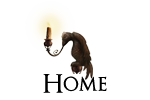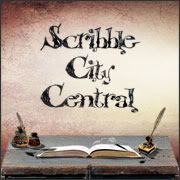There was also cake. Pretty fabulous cake. But I will leave the cake till later, because it's time for the first ingredient in your authory internet bookselling armoury. Yes. I know that's a slightly mixed metaphor. I have a hangover and can't think straight. Pass the Alka-Seltzer please. Last time, I left you wondering about author websites. I’m not going to go into any detail here about how you build one, because, frankly, I got the excellent Pedalo to do mine—but advice and help are easily obtained from many internet sources if you don’t know where to begin. Mine looks like this at the moment, but I'm about to do a major overhaul. Websites date horribly quickly--and there's always new technology coming along which will let you do all sorts of freshly-minted internet wizardry.
A good author website will:
• Tell people who you are as an author—you can include biographical material, writing tips, useful information about what you offer schools and libraries in the way of visits, contact details and also that vital FAQ page, where you give answers to all those questions people ask over and over, like ‘when did you start writing’ and ‘what is your favourite book’.
• Tell people about your books. This is the place to have all your covers and books and to plug your forthcoming titles. You can put up links to Amazon by each in-print title so that people can click and buy them direct. This might earn you some useful referral fees and it's definitely worth setting up an Amazon Associates account so you can take advantage of that.
• Plug your most wonderful reviews from both press and internet, (which will obviously make people want to buy your books)!
• Link to your other internet tools such as a blog (either external or integrated), Twitter, Facebook fan page, YouTube and podcasts (if you do them), all of which tie in to your books and you.
• Link to external sites such as SCBWI, Society of Authors and others which may be relevant to your books—and you can persuade them to link back to you, thus generating a wider promotional base for you and your books.
• Provide content for kids. You can incllude puzzles, games and downloadable art linked to your books if you want to. Because I have younger readers, I have a kids’ page with all those things, plus an interactive map of Greece and some black-and-white line drawings of cut-out-and-colour Greek monster masks. Teachers all tell me that this is a hugely useful resource, but it depends what age group you are writing for. You want to get kids interested in you and your books--then they'll pester their parents to buy them!
So, to sum up...
How will an author website sell books?
- Your website will generate interest in you as a writer and establish you as a 'brand'.
- It will (hopefully) hook in teachers and librarians and festival organisers as well as parents/readers, which will in turn generate sales.
- It will direct visitors to Amazon (more sales).
- It will excite visitors about new books (potential future sales).
You'll have to wait till Tuesday for Part 3 of my SCBWI talk, because I am having a couple of Top Secret assignations in London tomorrow (and no, I'm not telling unless you ask REALLY nicely). But I'll give you a clue about Part 3 instead. It involves An Author Blog. Bet you can't wait.



















3 comments:
that cake gives new meaning to the phrase 'devouring books!' I agree that a website gets outdated fairly quickly. I've had mine updated once since I put it up last year and will do an overhaul for my second book (newly released) and upcoming third book. Looking forward to part three and details about your London meetings!
Thanks for that, I'm constantly trying to improve mine.
These are very useful tips. Thanks for posting. I spent a day making Blogger magic. I got as far as tidy. That will have to do for now. :)
Post a Comment